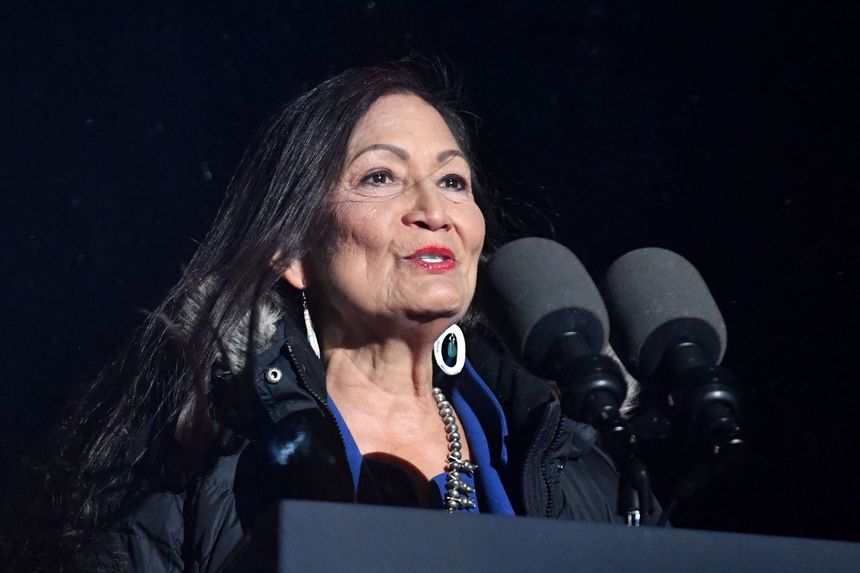
Secretary of the Interior Deb Haaland
Photo:
roberto schmidt/Agence France-Presse/Getty Images
The Biden Administration is heavily subsidizing electric vehicles, but at the same time it is blocking mineral projects needed to produce them. Another example of this head-scratching contradiction came Thursday when Interior Secretary
Deb Haaland
walled off much of Minnesota’s Superior National Forest from mining.
Minnesota’s Duluth Complex has one of the world’s largest undeveloped mineral deposits, including copper, nickel and cobalt that are needed in vast quantities for EV batteries. Ms. Haaland is assuring the deposit stays undeveloped by signing an order withdrawing more than 225,000 acres in the Superior National Forest from mining for two decades.
The order says the withdrawal is necessary to protect “fragile and vital social and natural resources” as well as the “traditional cultural values” and “subsistence-based lifestyles” of Native American tribes. But mining needn’t compromise these other interests, and individual mining projects must undergo rigorous federal environmental reviews.
Ms. Haaland is dancing to the tune of green lobbyists who want to keep minerals in the ground as they do fossil fuels. She’s making their job easier by pre-emptively vetoing projects. Now federal agencies won’t have to conduct laborious environmental reviews for proposed mines, and greens won’t have to sue to block them. How politically efficient.
Other mining projects in Minnesota, Arizona, Nevada and Alaska have been stuck in permitting purgatory and the courts. Ms. Haaland’s Superior National Forest withdrawal sets a precedent that could expedite the process of blocking other mining projects. Call it anti-permitting reform.
Has Ms. Haaland consulted auto makers? The Inflation Reduction Act (IRA) ties consumer tax credits for EVs to an increasing share of their battery minerals being extracted and refined in the U.S. or a country with which we have a free-trade agreement. Most nickel extraction and processing takes place in Russia, China, Indonesia and the Philippines.
To encourage the development of a domestic battery supply chain, the IRA includes a tax credit equal to 10% of the “costs incurred by the taxpayer with respect to production of such mineral.” Energy Secretary
Jennifer Granholm
has also been using her green venture capital fund to award low-cost loans to mineral mining and processing projects.
The Energy Department this month announced a $700 million loan for a Nevada lithium project. A graphite processing facility in Louisiana has received $220 million from the infrastructure bill and a $102 million loan from the Energy Department. Most graphite, by the way, is currently mined or manufactured from coking coal in China. Very environmentally friendly.
The reality is that if minerals aren’t mined in the U.S., they will be extracted in countries with far less stringent environmental and labor standards. Not that this seems to bother the White House. The State Department this month pledged to help build EV battery supply chains in the Democratic Republic of Congo and Zambia. The DRC produces more than 70% of the world’s cobalt, and Zambia is the world’s sixth-largest copper producer.
Wouldn’t it be better for American workers and the environment to mine these minerals in the U.S.? At least the Administration is consistent on one point: It wants to keep all U.S. natural resources that could be strategic energy assets in the ground.
Copyright ©2022 Dow Jones & Company, Inc. All Rights Reserved. 87990cbe856818d5eddac44c7b1cdeb8
Appeared in the January 30, 2023, print edition.








